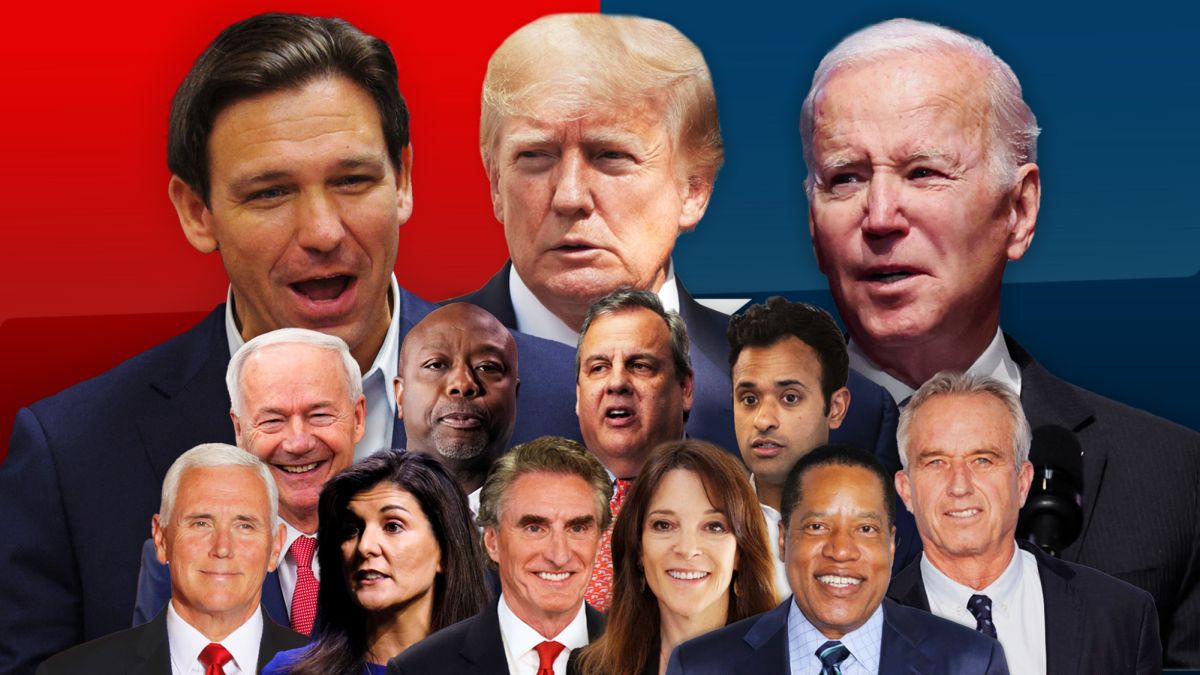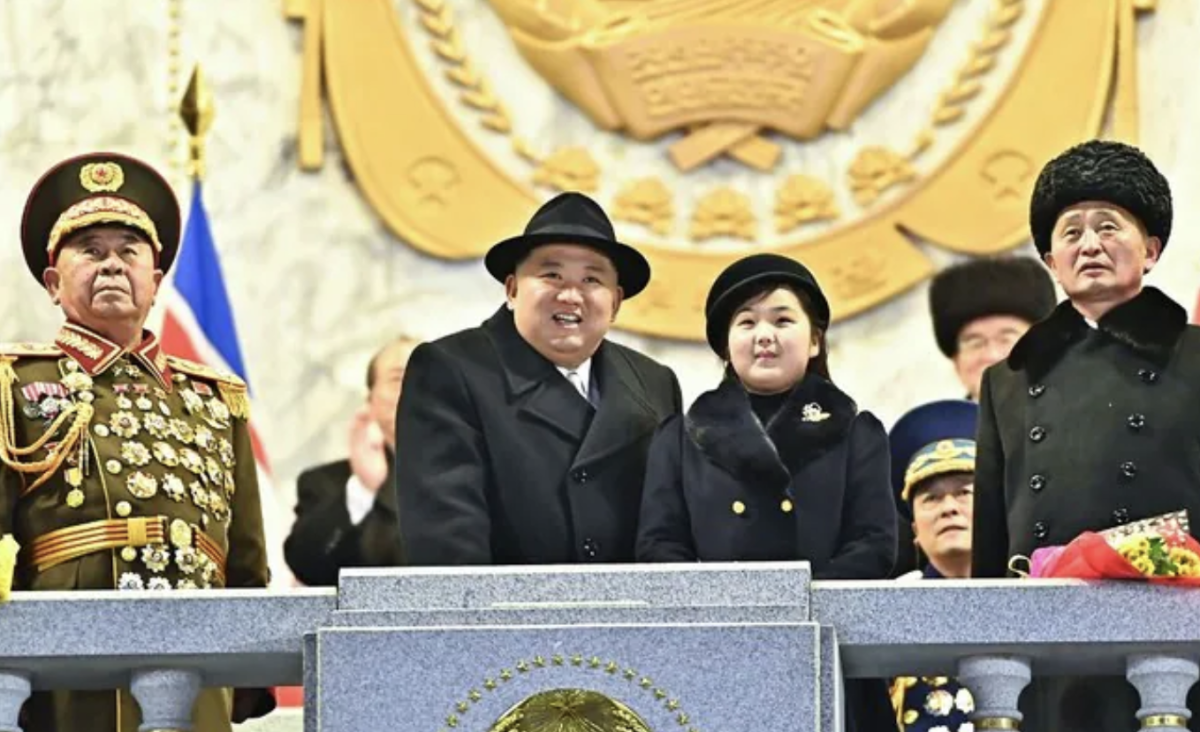Republicans and Democrats can agree on little these days, except for the undeniable notion that the United States faces a choice for our future. Although the political bickering that defined the 2020 presidential election—a divisive Covid-era battle between President Joe Biden and former President Donald Trump—seems like a recent memory, the American people are once again gearing up for what is certain to be a monumental and defining moment in our national path into the second quarter of the 21st century.
Over two years after Mr. Biden’s inauguration in January of 2021, the United States remains bitterly divided over whether the better choice is to re-elect Mr. Biden to another four-year term or to give another candidate, Republican or Democratic, the keys to the Oval Office. As political advertisements and emails soliciting donations begin to inundate our airwaves and inboxes, it becomes crucial that the American people understand who exactly their choices are in electing the next President of the United States.
Joe Biden, the Democratic incumbent, officially launched his re-election campaign on Tuesday, April 25, 2023, stressing that he and Vice President Kamala Harris need to “finish the job” for which they were elected in 2020. After attempting to address 40-year-high inflation and general unease among the public over economic fortunes, Mr. Biden’s approval rating remains low, hovering around 42 percent. Notable achievements that President Biden has touted include the successful passage of the Inflation Reduction Act—which mostly focuses on climate-related policy—and the Bipartisan Infrastructure Law, a historic investment in America’s roads, bridges and waterways. Mr. Biden has also met both steadfast support and vehement criticism over the financial and military resources that he has directed to Ukraine in its conflict with Russia. In making a decision between Mr. Biden and his Republican opponent, voters are likely to consider Mr. Biden’s advanced age—upon the completion of his second term, he would be 86 years old—and the consequences of his policies as they play out in the coming two years.
Marianne Williamson, an author and candidate against Mr. Biden in 2020, has also announced her bid for the Presidency. Focusing her messaging on economic inequality and fighting what she views to be corporate greed, Ms. Williamson’s campaign is widely viewed as a long-shot candidacy, but she is likely to garner support from economic progressives who backed Senator Bernie Sanders in 2016 and 2020.
Robert F. Kennedy, Jr., a lawyer and the son of former U.S. Senator Robert F. Kennedy, is also attempting to deny Mr. Biden the Democratic nomination. Known for his skepticism of vaccines, Mr. Kennedy’s campaign platform prioritizes environmental preservation and pacifism, and he can draw away support from Mr. Biden due to widespread recognition of and nostalgia for the Kennedy family name.
Donald J. Trump, who served as the 45th president from 2017 to 2021, is running his third campaign for the Presidency. In his first term, he delivered numerous aspects of the conservative agenda, including passing the Tax Cuts and Jobs Act of 2017, imposing protectionist trade policies, heralding the Abraham Accords, taking meaningful steps toward peace in the Middle East and successfully nominating three originalist Supreme Court justices. Despite this, Mr. Trump’s public perception is tainted due to his role in encouraging the January 6th, 2021, riot at the United States Capitol and recent allegations that he paid $100,000 in hush money to an adult movie actress, Stormy Daniels, to prevent her from speaking about their affair. Mr. Trump continues to lead as the pre-eminent frontrunner in the Republican field, attaining the support of around 50% of primary voters.
Ron DeSantis, the current Governor of Florida, is widely expected to announce his quest for the Oval Office soon. Known for the conservative approach he has taken to governing Florida—including limiting the teaching of gender-related studies in public schools and disobeying federal recommendations on Covid-19 mandates—Mr. DeSantis has centered his political leadership around his rejection of left-wing social progressivism. Seen as the strongest potential Republican challenger to Mr. Trump, Mr. DeSantis is testing the waters for a campaign around the country through a series of events he has held to promote his new book, The Courage to Be Free.
Nikki Haley, who formerly served as both the United States Ambassador to the United Nations and the Governor of South Carolina, is also vying for the Republican nomination and the presidency. Emphasizing her foreign policy credentials and leadership in reenergizing South Carolina’s economy, Ms. Haley hopes to build a coalition of moderate Republicans turned off by Donald Trump’s ascent and more hardline conservatives who make up the party’s grassroots base. What notably sets her apart from Mr. Trump and Mr. DeSantis is her belief that the United States should play a substantial role in helping Ukraine defeat Russia.
Vivek Ramaswamy, a 37-year-old entrepreneur and the author of Woke, Inc.—a rebuke of left-wing social ideas that Mr. Ramaswamy believes has infiltrated American institutions—has emerged as an unlikely major candidate in the 2024 Republican primary. Mr. Ramaswamy has been known for his unique rhetoric and campaigning style as he highlights his opposition to social progressivism. A defender of Mr. Trump, Mr. Ramaswamy says he plans to implement “America First 2.0”—a policy platform that consists of promoting American patriotism, incentivizing economic growth and streamlining bureaucratic structures—if he is elected.
Tim Scott, the junior United States Senator from South Carolina and one of three African Americans in the U.S. Senate, announced his exploratory committee for a presidential campaign this month. Mr. Scott, a Republican, is most well-known for his work in initiating and obtaining funding for Opportunity Zones, a program that provides increased economic opportunities to underserved neighborhoods across the country. Like Ms. Haley, Mr. Scott has substantial name recognition in South Carolina—an early primary state—which he currently represents in Washington D.C. as Senator.
Asa Hutchinson, the former Governor of Arkansas, publicized his candidacy for the Oval Office in an interview with ABC News, where he discussed at length his experience governing Arkansas and opposition to Mr. Trump’s claims about the 2020 election. Mr. Hutchinson has aligned himself with prominent anti-Trump Republicans, including former Representatives Liz Cheney of Wyoming and Adam Kinzinger of Illinois.
Other candidates who have announced campaigns for the Presidency include Corey Stapleton, the former Secretary of State of Montana, Larry Elder, the talk show host who unsuccessfully ran for Governor of California in 2021 and Steve Laffey, the former mayor of Cranston, Rhode Island.
In the coming months, we will hear from presidential candidates of all political stripes about their vision for the future of our country. Only on November 5, 2024, will we know who has best convinced the American people that he or she is the best option to lead America into the new dawn.













